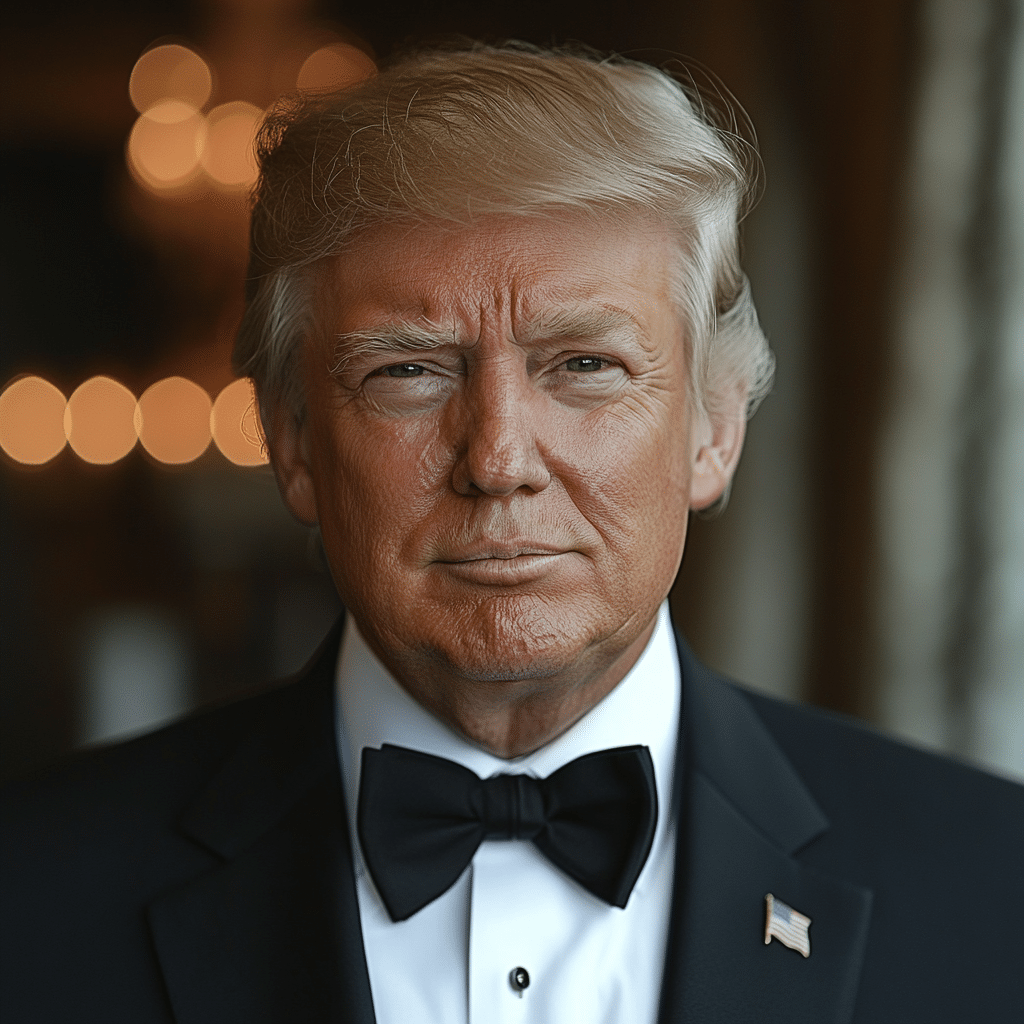The phrase “mea culpa,” meaning “through my fault” in Latin, has a rich history that’s far more captivating than it may seem. Originally rooted in the Catholic Church, where it was employed during confessional prayers, today this term has evolved into a key concept across various sectors, namely politics, business, and even social media. So buckle up; we’re diving headfirst into the intriguing world of mea culpa, exploring its twists and turns that resonate through film, celebrity scandals, and even everyday interactions.
Understanding ‘Mea Culpa’: A Term Rich in History and Significance
Historically, the phrase encapsulated elements of personal accountability and confession within religious practices. This foundational meaning paved the way for its adoption in different contexts, highlighting the notion that we all have flaws and can learn from them. What’s fascinating is that mea culpa speaks to something universal—everyone can relate to being in a sticky situation where they must take responsibility for their actions. Whether it’s a blockbuster film that explores redemption or a scandal involving a public figure, the implications of a good old-fashioned mea culpa are far-reaching.
As we look at the evolution of this term over time, its significance in modern dialogues has blossomed. We’ve arrived at a place in our culture where admitting mistakes is no longer a sign of weakness but a cornerstone of personal growth. This shift invites not only acknowledgment of past errors but also a commitment to betterment—something that resonates deeply, especially among movie enthusiasts who love a good redemption arc.

The Top 5 Cultural Milestones of ‘Mea Culpa’
The origins of mea culpa are steeped in Catholic tradition. Here, penitents confess their sins to priests, asking for forgiveness. This practice has shaped much of Western thought about guilt and accountability, emphasizing that it’s okay to acknowledge our mistakes and work toward forgiveness. The gravity of this phrase is well illustrated in films that delve into themes of sin and redemption, reminiscent of biblical narratives set against a cinematic backdrop.
Jumping from the confessional booth to the White House, Bill Clinton’s infamous, “I did not have sexual relations with that woman,” followed by a swift mea culpa post-scandal, provided a dramatic twist in American politics. His admission of wrongdoing showcased how personal and political accountability intersect. Films like “Primary Colors,” which loosely portrays Clinton’s journey, capture the essence of these complex dynamics, making it a fascinating watch for the politically curious movie buff.
In 2013, Lance Armstrong’s explosive admission during a televised interview sent shockwaves through the sports world. As he proclaimed his mea culpa regarding doping allegations, the repercussions were monumental. Armstrong’s effort aimed to pave a path toward redemption, but the response was mixed, reflecting society’s complicated relationship with forgiveness. This scenario highlights a profound lesson storytelling, echoed in films about athletes facing moral dilemmas.
In 2015, Volkswagen was caught in a whirlwind of controversy when it was revealed that they had manipulated emissions tests. The company issued a public mea culpa, shifting from flashy ads about new technology to campaigns focused on accountability and transparency. This strategy drew attention not just from industry insiders but from moviegoers who enjoy thrillers set against corporate backdrops, mirroring real-world scandals.
The rise of social media has revolutionized the way apologies flow in our hyper-connected world. Celebrities like Justin Bieber and Kevin Hart have taken to platforms like Instagram to lay bare their transgressions, showcasing a new phenomenon where immediate accountability is the order of the day. This shift reflects a broader cultural expectation that even the most famous faces should own up to their mistakes, a subplot that often finds its way into contemporary dramas and documentaries alike.
‘Culpa Mia’ vs. ‘Culpa Tuya’: Individual Responsibility and Shared Blame
Diving deeper, we encounter the terms culpa mia (my fault) and culpa tuya (your fault), which exemplify the nuanced nature of accountability. Understanding these phrases enhances our grasp of how blame operates within relationships.

A Contemporary Examination of Accountability
In today’s climate of rapid communication, the mea culpa stands as more than just a phrase; it reflects our society’s yearning for authenticity. We find ourselves questioning what genuine accountability looks like. Examples ranging from political figures to entertainment icons show that a timely apology can dramatically reshape public perception and pave the way for personal reparations. This sentiment resonates deeply with movie fans because it mirrors the classic redemption arcs that they’ve come to adore.
The language surrounding mea culpa continues to develop, evolving alongside societal expectations for honesty and responsibility. With roots in confession and the moral quandaries chronicled on-screen, it remains a vital part of our shared conversation. Reflecting on how we admit fault and seek forgiveness calls for continued exploration—not only in our personal lives but also through the compelling stories we watch unfold on cinema screens.
In closing, the exploration of mea culpa, along with its variants, captures the beautiful intricacies of human relationships and societal norms. As we witness public figures navigate their journeys of redemption, we find echoes of our struggles within their narratives. It’s more than just a term; it’s a reminder that we all stumble occasionally but have the capacity to rise again. So whether you’re a cult classic fanatic or a follower of the latest streaming sensations, the next time you hear someone say “mea culpa,” remember—it’s about much more than just admitting a mistake; it’s about forging paths toward growth, understanding, and perhaps even a bit of cinematic redemption.
The Intriguing World of ‘Mea Culpa’
A Term with Historical Roots
The phrase “mea culpa,” meaning “through my fault” in Latin, has quite the story. In the Catholic rite, it’s often recited during confessions, highlighting a sense of personal responsibility. Its origins trace back to ancient times, where admissions of guilt were more than just words; they were acts of contrition. Speaking of guilt and responsibility, did you know that Scott Weiland, the late frontman of the Stone Temple Pilots, once sang about his struggles and regrets? His music brings to light the complex emotions we all face, similar to the journey of grappling with a heartfelt mea culpa.
Pop Culture and ‘Mea Culpa’
Fast forward to today, and the term has found its way into popular culture. In the context of TV shows like “BMF,” where characters face tough decisions and their consequences, saying “mea culpa” is almost an expected ritual. A show that dives deep into the lives of its characters, some from the BMF Season 3 cast, tackles themes of crime and redemption. This mirrors the essence of mea culpa, illustrating that owning up to one’s misdeeds can lead to deeper understanding and sometimes, unexpected growth.
Reflections in Media
Moreover, the term pops up across various forms of media—from heartfelt confessions to dramatic plot twists. On platforms like Pirlo TV, discussions often reflect personal stories that resonate with the audience, making the concept of a mea culpa feel relevant today. Films and series often portray characters in the shadow of their pasts, akin to how Mufasa from The Lion King offers wisdom on responsibility and courage. The striking contrast between characters who face their faults and those who evade them showcases the timeless nature of this term.
While engaging with such profound ideas, characters like Macho Man randy savage in wrestling have also playfully embraced the concept of accountability, cementing its place in entertainment history. Just as public figures like Rush Limbaugh have stirred conversations around accountability and transparency, the term mea culpa continues to inspire dialogue—prompting audiences to reflect on their own lives and actions. Embracing a mea culpa may just be what we need to bridge the gap to personal evolution.

What does mea culpa mean literally?
Mea culpa literally means “through my fault” in Latin, and it’s often used to acknowledge one’s own mistake or wrongdoing.
How do you use mea culpa?
To use mea culpa, you might say it when you take responsibility for a mistake, like admitting you forgot someone’s birthday and saying, “Mea culpa for not remembering!”
Is mea culpa an apology?
Yes, mea culpa is an apology, but it’s more about owning up to a mistake instead of just saying “I’m sorry.”
What is Mia Culpa about?
Mia Culpa is a film that explores themes of guilt and redemption, following a character who grapples with their past actions and their impact on others.
Is mea culpa like my bad?
Mea culpa is kinda like “my bad,” where you admit a mistake, but it’s often more formal and serious, reflecting deeper accountability.
What is the correct response to mea culpa?
A common response to mea culpa is to accept it gracefully, perhaps saying “No problem” or “We all make mistakes.”
Is mea culpa appropriate?
Mea culpa is appropriate in contexts where someone wants to sincerely apologize or admit their fault, but it might not fit casual situations.
What is an example of mea culpa?
An example of mea culpa could be someone saying, “I really messed up on that project; it was my fault,” to acknowledge their role in a failure.
What are people saying about mea culpa?
People often use mea culpa as a way to show they’re owning up to their mistakes, which usually gets a positive response of understanding or forgiveness.
What is a synonym for mea culpa?
A synonym for mea culpa is “apology,” though it carries a slightly different weight.
What happens after mea culpa?
After someone says mea culpa, the typical next step can be working to make amends or just moving forward with acknowledgment of the mistake.
Who said mea culpa?
The phrase mea culpa has been used by various figures throughout history, including politicians and public figures, to take responsibility for their actions.
Was Mea Culpa’s husband cheating?
No credible evidence suggests that Mea Culpa’s husband was cheating; it’s essential to look for reliable sources to confirm rumors or claims.
Is culpa mia appropriate?
Culpa mia is just the Italian version of mea culpa, and while it means the same thing, it’s also appropriate in contexts where Italian is the language spoken.
How do you say Mea Culpa?
You say mea culpa as “may-ah kool-pah,” pronouncing it with a clear emphasis on both words.
What is another term for mea culpa?
Another term for mea culpa is “self-blame,” which refers to taking responsibility for one’s own errors.
What are people saying about mea culpa?
People often discuss mea culpa in terms of personal growth and accountability, highlighting how admitting faults can lead to improved relationships.
What is the Catholic prayer with mea culpa?
The Catholic prayer that includes mea culpa is the Confiteor, where congregants acknowledge their sins and ask for mercy, saying, “Mea culpa, mea culpa, mea maxima culpa.”
What is an example of mea culpa?
An example of mea culpa could be when a politician admits to a mistake in their decision making, saying they take full responsibility for the negative consequences.


![Gojira - Mea Culpa (Ah! Ça ira!) [OFFICIAL VIDEO]](https://www.cinephilemagazine.com/wp-content/cache/flying-press/df9263b54d24fe4d563bf143c1d834dc.jpg)
![Gojira - Mea Culpa (Ah! Ça ira!) [OFFICIAL AUDIO]](https://www.cinephilemagazine.com/wp-content/cache/flying-press/7b422d5e50ae82e42edbb602a8ff67b9.jpg)



